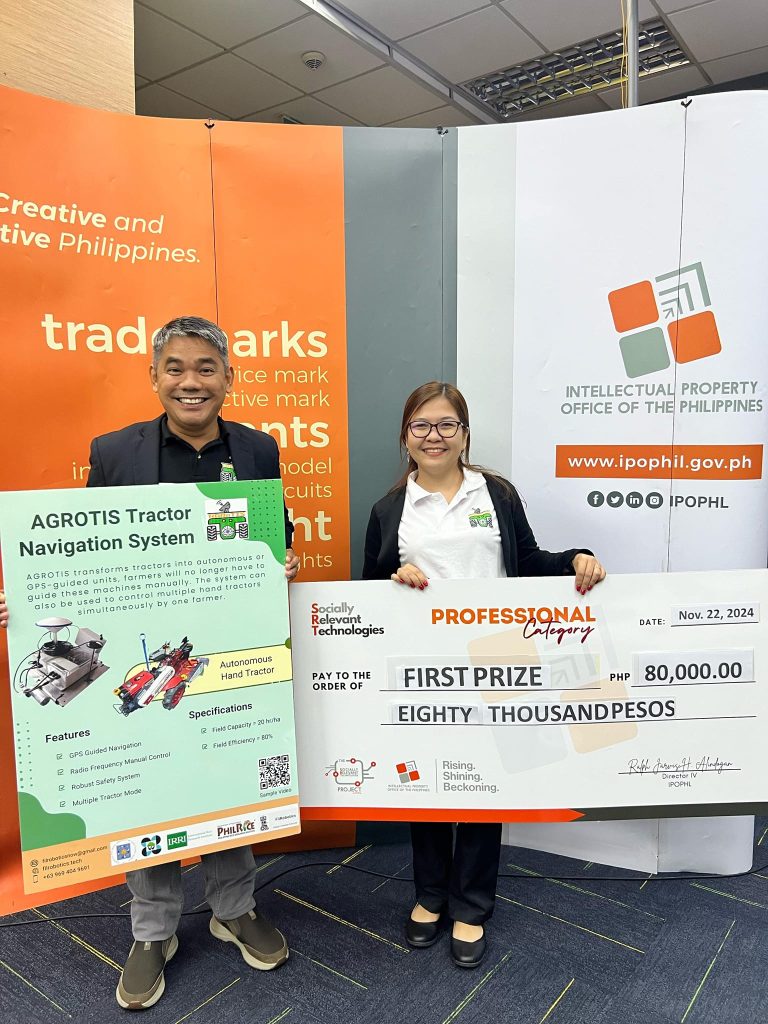Thomasian engineers have recently developed a navigation system to assist rice farmers in preparing the land, and this innovation just won the grand prize in the Professional Category at the 5th Socially Relevant Technologies Innovation Contest, held at the Intellectual Property Office of the Philippines in Taguig City. The AGROTIS Navigation System, a groundbreaking innovation led by Faculty of Engineering academic researchers Assoc. Prof. Anthony James C. Bautista, PME, MBA, Ph.D., alongside with the support of Asst. Prof. Mary Grace Ann C. Bautista, MSc., with their research Specialists Mr. John Raven Red and Ella Casabuena, aims to revolutionize land preparation in rice farming through automation.

Agriculture in the Philippines and neighboring ASEAN countries faces a critical challenge: the annual decline in farm labor availability, estimated at 1.5%. Younger generations are increasingly uninterested in farming, leaving an aging workforce with an average age of 55 to 60 years. This trend could affect our food sustainability within the next 5 to 10 years.
Addressing this pressing issue, AGROTIS transforms conventional hand tractors into fully autonomous machines. The system uses a GPS module for precision navigation and a compass module to determine the robot’s orientation. With this technology, farmers can control multiple hand tractors simultaneously, increasing efficiency and reducing manual labor. Safety is also prioritized with an emergency shutoff feature installed in the system.
Funded by the Philippine Council for Agriculture, Aquatic and Natural Resources Research and Development (DOST-PCAARRD), the AGROTIS system was developed in collaboration with the Philippine Rice Research Institute (PhilRice), the International Rice Research Institute (IRRI), and UST’s own technology business incubator, the TOMASInno Center (TIC). Its modular design can be extended to other machinery like rice harvesters and transplanters. Tested by Agricultural Machinery Testing and Evaluation Center (AMTEC), AGROTIS has demonstrated 80% field efficiency and 20 hours-per-hectare field capacity compared to traditional methods, significantly enhancing productivity.
The team plans to deploy AGROTIS through rental models for rice cooperatives and direct sales to farmers, while also seeking collaborations with international tractor manufacturers. With a vision to expand into ASEAN markets, the system is a step toward modernizing agriculture and ensuring food sustainability.




